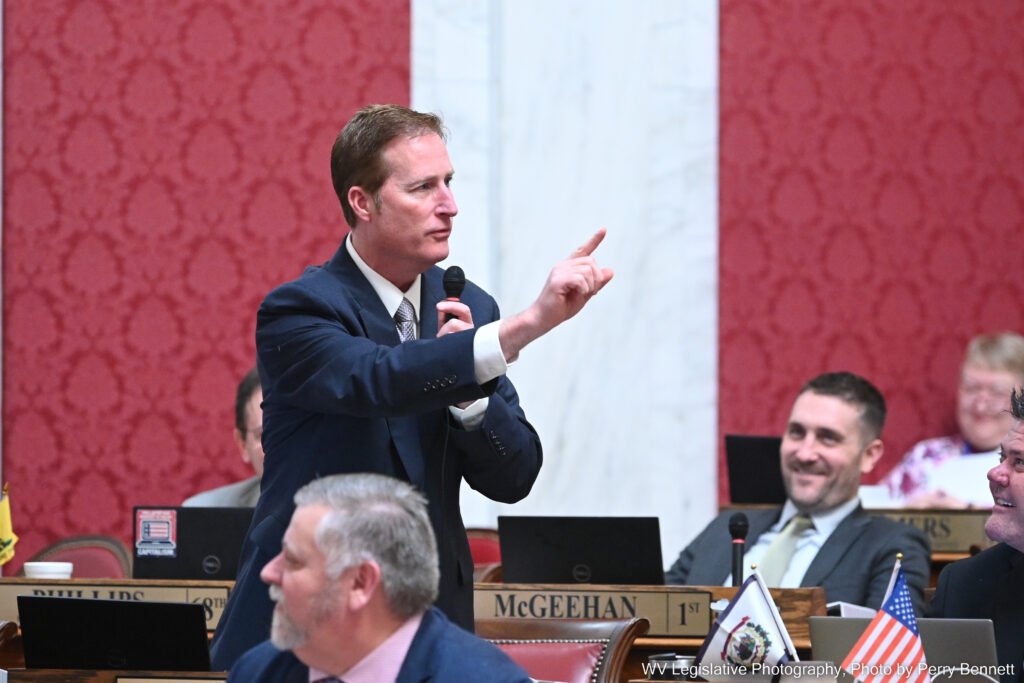Updated on Saturday, March. 11, 2023 at 5:20 p.m.
The political ping-pong match that is the final day of session is starting to provide results. Saturday afternoon, the Senate received several bills from the House of Delegates and concurred on their amendments.
Senate Bill 220, the Industrial Hemp Development Act, became law, as did Senate Bill 534, which allows cities to designate outdoor areas for the sale, service and consumption of alcoholic beverages.
Senate Bill 422, which requires public schools to publish curriculum online at the start of each school year also became law.
Original Post:
On Friday, the House passed Senate Bill 220, the Industrial Hemp Development Act, covering the sale of kratom and other hemp-derived cannabinoids including delta-8 and delta-10. The bill limits the sale to those 21 years old and up. Unapproved products are considered contraband with criminal penalties for unlawful possession, distribution and sales.
The House amended the bill to exempt products with no THC, derived mostly from the plant stems, such as clothing and flip-flops.
The vote was 92 to 4 and it returned to the Senate.
Online Curriculum
Senate Bill 422 requires each school to publish its up-to-date curriculum on the school’s or County’s website. This was recommended by Gov. Jim Justice during his State of the State address. New or revised curriculum would have to be posted within 30 days of adoption.
Some delegates said the bill duplicates what is already accessible. Others said working parents struggle to attend teachers meetings, and a curriculum posting should be easily accessible.
The vote was 75-21. SB 422 returns to the Senate.
Outdoor Alcohol
Senate Bill 534 allows cities to designate outdoor areas for the sale, service and consumption of alcoholic beverages through city ordinance and state-licensing. Del. Tom Fast, R-Fayette, objected to allowing free alcohol samples at fairs and festivals.
Del. Bryan Ward, R-Pendleton, also objected to government promotion of alcohol.
“I would just suggest maybe next year we can try to legalize prostitution and the state could just be the pimps and we could make some money,” Ward said.
The vote was 59-32 and it returned to the Senate .
Campaign Contributions
After an abrupt and vote-turning debate, the House advanced Senate Bill 508, increasing campaign contribution limits that trigger reporting requirements.
Currently, any person who contributes more than $500 in a three-month period, or $200 in any one month, to present a program to the public designed to influence legislation must register with the state Ethics Commission as a sponsor of a “grassroots lobbying campaign” under state law.
Additionally the campaign sponsor must report the names and addresses of each person contributing $25 or more to the campaign to the Ethics Commission under current state law.
Under SB 508, those reporting thresholds are raised to $5,000 and $1,000, respectively. The $25 threshold would be raised to $1,000.
Bill opponents said the measure would enhance dark money spending, referring to a term used for undisclosed spending to sway voters’ opinions.
SB 508 goes to the governor for signature.
Defining a Minor
House Bill 3190 amends the state’s definition of a minor to include adults who use electronic devices to catch child predators.
Trump explained that the current legal definition of a minor is so specific, it does not allow law enforcement to arrest predators that have been caught luring or soliciting minors online during stings where officers impersonate minors.
While in committee, an amendment was proposed to the bill that would removed the marital exemption for sexual assault from state code. The amendment failed on the Senate floor because it was not germane to the original bill.
HB 3190 now goes back to the House for concurrence.




















